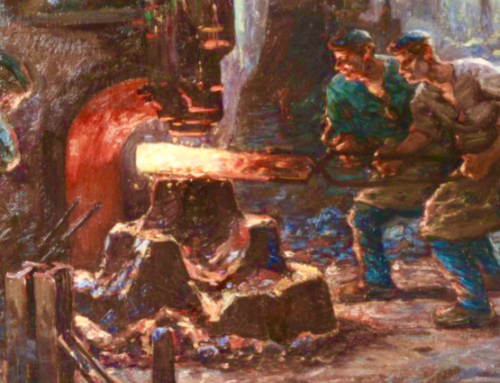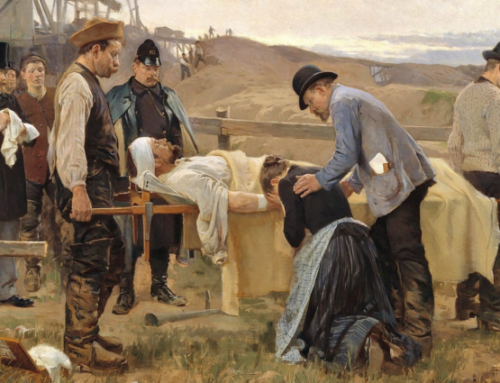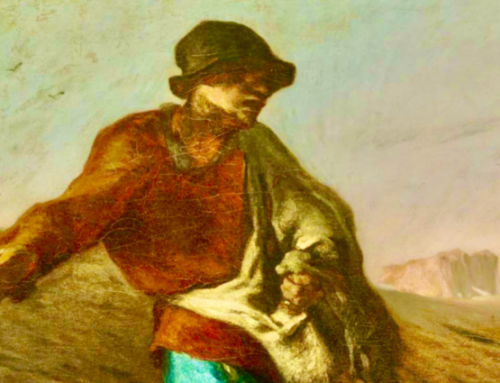 David Mamet is the Pulitzer Prize-winning playwright, film and television director, and author of many books of essays, most recently, in 2011, of the crackling libertarian manifesto, The Secret Knowledge: On the Dismantling of American Culture.
David Mamet is the Pulitzer Prize-winning playwright, film and television director, and author of many books of essays, most recently, in 2011, of the crackling libertarian manifesto, The Secret Knowledge: On the Dismantling of American Culture.
The target of Mamet’s book is an updated version of Rousseau’s noble savage: a 21st-century peace-loving tribesman whose Eden it is the charge of the state to regain. And when it does,
There will be no more pollution, for we will vote to stop our polluting ways; there will be no more war, as all sovereign States will be subsumed into a large tribe of the mutually understanding (cf. the United Nations), there will be no more Poverty, because the Earth Holds Enough for All, and lacks only that Wise Leadership which will see to its Just Distribution (a dictator). And all that stands between this utopia and our present state of stupid error are the Conservatives, who believe only in Greed—(Chapter 18).
Mamet’s trenchant critique of the Left—of its religious devotion to the state and its devolution (daily, before our very eyes) into dictatorship—makes for compulsive reading. If the argument is between Leftist statism and the libertarianism of Mamet, a political philosophy that prizes individual responsibility and the free market above state control, then Mamet surely deserves to win it. But the question that compels me in thinking through Mamet’s argument is what the territory might look like after his argument is won. Let us say (per impossibile, it would seem) that we here in the United States are governed by a state that moderates its passions and adheres to the principles of the Constitution. Let us say that we live in a polity where individuals value above all choice and the market. The question should then arise:
What should be done with all this freedom?
Mamet says that the essence of freedom is choice. But this is false. The essence of freedom is choice formed in the truth. For, if I can make all the choices I want, but all they do is pamper my appetites, then how can I be said to be truly free? I am not free. I am an adolescent out of control.
When it comes to the plying of trade in the market, the truth to which freedom most needs to conform is the fact that the economy needs to be directed to the household. This means more than a family breadwinner earning wages, though that’s obviously a start. It also means ensuring that the work being done serves, rather than undermines, the common good of the family.
But who is supposed to ensure this?
To trust the modern state to do so is clearly dangerous. Families themselves have to take responsibility for making sure that the market serves them rather than the reverse.
The family, however, is not the only community within which free enterprise needs be circumscribed. There are also the communities generated by the practices of various crafts and professions. In The Secret Knowledge Mamet himself gives us a snapshot of one, from his own experience directing films:
A director (I speak as one who has directed ten features, and quite a bit of television), is exposed to something of which the actors and writers may not have taken notice: the genius of America, and the American system of Free Enterprise. The director sees, on the set, one or two hundred people of all walks of life, races, incomes, political persuasions and religions, and ages, men and women, involved, indeed dedicated to doing their jobs as well as possible (indeed the ethos of the film set could, without overstatement, be described as “doing it better than it’s ever been done”), in aid of the mutual endeavor (the film). Each brings not only his or her particular expertise and craft, but an understanding of and dedication to the culture of filmmaking: work hard, pitch in, never complain, admire and reward accomplishment—(Chapter 19).
What Mamet describes here is something far more than free enterprise. Free enterprise can be exercised simply by making and selling something, with or without consideration of the kind of craft, expertise, and teamwork Mamet so admires on film sets. What Mamet describes is free enterprise circumscribed by human devotion to a common good (the film) and to the virtues required to bring that work of art into existence according to the highest standards of the craft.
And it is crucial to note that this kind of community of the common good is not a product of libertarian principles, nor even by the principles of some understandings of conservatism. Nor is it, of course, the product of the kind of shanty-town social justice found in the Occupy movement.
Communities of the common good are the product, rather, of a certain, call it Aristotelian, understanding of the human person—one in which human beings are made for the exercise of virtue within communities whose goods are intrinsic to their activity, such as families, schools, and film companies. These are the communities that are the antidote to the statism Mamet criticizes. Freedom is their necessary, but not sufficient, condition.
Books mentioned in this essay may be found in The Imaginative Conservative Bookstore.







Dr. McInerny: “Mamet’s trenchant critique of the Left—of its religious devotion to the state and its devolution (daily, before our very eyes) into dictatorship—makes for compulsive reading.” Assuming that the excerpt you quoted at the outset is representative, it seems to me that you’ve mistaken caricature for critique. As a certified and card-carrying member of the Left, I can assure you I do not worship the state, nor do my Leftist comrades; we just don’t fear it quite so much as you and Mamet do (though we approach it with caution, to be sure; I don’t remember the Left being all that happy about the Patriot Act). I can also assure you that neither the Left nor the state is devolving into a dictatorship: that’s either mere provocative hyperbole or Alex Jones-style paranoia.
As for your statement that “The essence of freedom is choice formed in the truth”: yes, by all means, and once we all agree on the truth, things should proceed swimmingly.